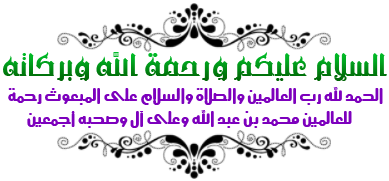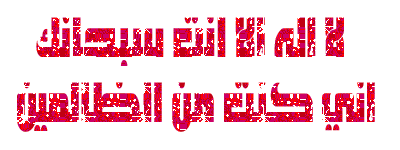
Concerns of the Islamic Scholars During
Ramadan
Shaykh `Aa’id Abdullah al-Qarnee
ARTICLE TAKEN FROM THE BOOK :
Thirty Lessons for those who Fast
Allah Almighty declares in the Quran:
(إِنَّ هَـٰذِهِۦۤ أُمَّتُكُمۡ أُمَّةࣰ وَ ٰحِدَةࣰ وَأَنَا۠ رَبُّكُمۡ فَٱعۡبُدُونِ)
[Surah Al-Anbiya’ 92]
‘Verily, [O you who believe in Me,] this community of yours is one single community, since I am the Sustainer of you all: worship, then Me [alone]’(21:92).
He further explains:
(إِنَّمَا ٱلۡمُؤۡمِنُونَ إِخۡوَةࣱ فَأَصۡلِحُوا۟ بَیۡنَ أَخَوَیۡكُمۡۚ وَٱتَّقُوا۟ ٱللَّهَ لَعَلَّكُمۡ تُرۡحَمُونَ)
[Surah Al-Hujurat 10]
‘All believers are but brethren’(49:10).
As for the Prophet sallallahu `alaihi wa sallam, he clarified the nature of the relationship between Muslims in this famous hadith:
عن النعمان بن بشير -رضي الله عنهما- قال: قال رسول الله ﷺ: مثل المؤمنين في توادهم وتراحمهم وتعاطفهم مثل الجسد إذا اشتكى منه عضو تداعى له سائر الجسد بالسهر والحمى
أخرجه مسلم، كتاب البر والصلة والآداب، باب تراحم المؤمنين وتعاطفهم وتعاضدهم، (4/ 1999)، برقم: (2586)، والبخاري، كتاب الأدب، باب رحمة الناس والبهائم، (8/ 10) برقم: (6011)، بلفظ: ترى المؤمنين في تراحمهم وتوادهم وتعاطفهم كمثل الجسد، إذا اشتكى عضو تداعى له سائر جسده بالسهر والحمى
‘The example of the Muslims in their love and mercy for each other is like the body. If one part is afflicted, all the other parts rally to its aid with fever and sleeplessness.’
Today Muslims pass this month of Ramadan in transgression and crises.
Capitalism is rife with greed. It directs its hostility against the Islamic world with intellectual on slaughts. The foremost means toward this is through women, wine and other enticements, distractions, luxuries and unlawful amusements.
Secularism calls for the separation between the religion and worldly affairs. It seeks to oust Islam from life’s stage on the pretext that religion distinguishes between people. In effect, secularism is an atheist ideology that disregards all religions and, therefore, excludes Islam in its entirety from playing any role in human life.
Freemasonry, the Jewish creation, has come to destroy religions including Islam. On the surface it appears to be calling for the unity of all people. It has its own means, taboos, emblems and cliques. It operates in secret, has world-wide influence and springs from Zionist origins.
Hence today the Islamic nation suffers from intense wounds:
Palestine has been stolen from it, Al Aqsa mosque remains a hostage while old men, women and children are slaughtered morning and evening. Yet, Palestine will never be returned to the Muslim lands except by an Islam with the rage of Umar ibn al Khattab, the boldness of Salah al Din and the sincerity of Ibn Taymiyah.
The Muslim woman is fought against because of her covering, modesty, purity and religion.
Our young men are seduced by destructive means, satanic enticements and sensual delights.
Evangelism is penetrating the Islamic world from all four directions.
Divisions and schisms are widespread among Muslims except those whom Allah has shielded.
In the circumstances, what is required is that the Muslim should live for these great issues with his sentiments, wealth and prayers. He should strive to increase awareness among his Muslim brothers of these dangers. The Muslim should work relentlessly to bring about unity within the ranks of his own community. More importantly, the Islamic nation must avoid disputes and internal wrangling that only cause failure; particularly when the news of these calamities that afflict the Islamic world are exposed and become the issues of the day. As a result, no Muslim should despise himself because in every Muslim there is good.
Indeed, every Muslim is expected to struggle if he or she is able and to stop making excuses. They must strive with their persons and their wealth. If not, with their wealth and the support of others who spend of their wealth to advance the cause of Islam. They should, at the end of each prayer, in the early hours of the morning, and other times when prayers are answered, implore Allah to establish and grant victory to the Muslims. We must, moreover, all call upon Allah to increase us in piety and God-consciousness because the disasters and calamities that have befallen us are all on account of our sins and short comings.
أَوَلَمَّا أَصَابَتْكُم مُّصِيبَةٌ قَدْ أَصَبْتُم مِّثْلَيْهَا قُلْتُمْ أَنَّىٰ هَٰذَا ۖ قُلْ هُوَ مِنْ عِندِ أَنفُسِكُمْ ۗ إِنَّ اللَّهَ عَلَىٰ كُلِّ شَيْءٍ قَدِيرٌ
[Surah Aal-E-Imran 165]
‘And do you, now that a calamity has befallen you after you had inflicted twice as much [on your foes], ask yourselves,
“How has this come about?” Say: “It has come from your own selves”‘(3:165).
Ramadan Calls For The Preservation Of Time
Shaykh `Aa’id Abdullah al-Qarnee
ARTICLE TAKEN FROM:
Thirty Lessons for those who Fast
Allah describes the discourse between Himself and the reckless and negligent on the Day of Judgement: ‘[And] He will ask [the doomed]:
(قَـٰلَ كَمۡ لَبِثۡتُمۡ فِی ٱلۡأَرۡضِ عَدَدَ سِنِینَ قَالُوا۟ لَبِثۡنَا یَوۡمًا أَوۡ بَعۡضَ یَوۡمࣲ فَسۡـَٔلِ ٱلۡعَاۤدِّینَ قَـٰلَ إِن لَّبِثۡتُمۡ إِلَّا قَلِیلࣰاۖ لَّوۡ أَنَّكُمۡ كُنتُمۡ تَعۡلَمُونَ أَفَحَسِبۡتُمۡ أَنَّمَا خَلَقۡنَـٰكُمۡ عَبَثࣰا وَأَنَّكُمۡ إِلَیۡنَا لَا تُرۡجَعُونَ فَتَعَـٰلَى ٱللَّهُ ٱلۡمَلِكُ ٱلۡحَقُّۖ لَاۤ إِلَـٰهَ إِلَّا هُوَ رَبُّ ٱلۡعَرۡشِ ٱلۡكَرِیمِ)
[Surah Al-Mu’minun 112 – 116]
“What number of years have you spent on earth?” They will answer: “We have spent there a day, or part of a day; but ask those who [are able to] count time… .[Whereupon] He will say: “You have spent there but a short while: had you but known [how short it was to be]! Did you then think that We created you in mere idle play, and that you not have to return to Us? [Know,] then, [that] God is sublimely exalted, the Ultimate Sovereign, the Ultimate Truth: there is no deity save Him, the Sustainer, in bountiful almightiness enthroned!”‘ (23:112-16).
One of the righteous predecessors noted: life is short, do not shorten it with negligence. This is, certainly, true. Negligence shortens the hours and consumes the night. Hence the Prophet sallallahu `alaihi wa sallam said:
عَنِ ابنِ عباسٍ – رضي اللهُ عنهما – قال: قال رسولُ اللهِ صلَّى اللهُ عليه وسلَّم: « نِعمَتانِ مغبونٌ فيهما كثيرٌ من الناسِ: الصَّحَّةُ والفَّراغُ» رواه البخاري
‘Two favours that many people are deceived by: health and spare time.’ The lesson being that many people are healthy and have a lot of time on their hands yet their lives pass by quickly before them without their using them or benefiting anyone. He also warned: ‘The foot of a believer will not move on the Day of Judgement until he is asked about four things and mention his life span and how he utilized it.’ Life is, undoubtedly, a treasure, whomsoever spends it in obedience to Allah will find his treasure on the Day when wealth and sons will be of no avail but instead only those who returned to Allah with clean hearts. Thus, those who spent their lives in negligence, disobedience and play will on that Day regret in such a manner that will never be equaled thereafter. They will say: ‘Alas for us, that we disregarded our lives.’
In effect, both the night and day are like riding animals that transport man to either eternal happiness or loss. Our righteous forbears used to take every initiative to preserve their time. There are strange stories about them concerning this matter. There were among them those who used to read the Quran and they were on the threshold of death. Such an example was Junaid ibn Muhammad. His sons said to him, ‘You are exhausting yourself.’ He replied, ‘And should there be among the people one who exerts himself more than me?’
Al Aswad ibn Yazid used to stand in prayer for most of the night. Some of his friends advised him to relax at least for a small portion of the night. He told them it is this very relaxation he is in search of; meaning in the Hereafter.
Sufiyan al Thowri once sat in the Sacred Mosque speaking to some people. Then suddenly he arose terrified and said; we are sitting here and the day is doing its work. There were among our forbears those who used to divide their days and nights into hours. Hence they allocated specific hours for prayers, recitation, remembrance, meditation, acquisition of knowledge, work and sleep. They ascribed no time for merriment.
As for their successors, they have been afflicted by the calamity of time-wasting. Except, of course, those to whom Allah has shown mercy. They indulge in excessive sleep, idleness, aimless wandering, spending on amusements and sittings in which there is no benefit; or in meetings which, if they do not involve disobedience, are definitely the cause of disobedience.
Among the greatest things that organize time and work are the five daily prayers. Allah the Sublime and Most Excellent Speaker affirms in the Quran:
فَإِذَا قَضَیۡتُمُ ٱلصَّلَوٰةَ فَٱذۡكُرُوا۟ ٱللَّهَ قِیَـٰمࣰا وَقُعُودࣰا وَعَلَىٰ جُنُوبِكُمۡۚ فَإِذَا ٱطۡمَأۡنَنتُمۡ فَأَقِیمُوا۟ ٱلصَّلَوٰةَۚ إِنَّ ٱلصَّلَوٰةَ كَانَتۡ عَلَى ٱلۡمُؤۡمِنِینَ كِتَـٰبࣰا مَّوۡقُوتࣰا
[Surah An-Nisa’ 103]
‘Verily, for all believers prayer is indeed a sacred duty linked to particular times [of day]‘(4:103).
The month of Ramadan is a school in which the Muslim’s time is organized and invested in matters that lead to closeness to Allah. Not withstanding , some people do not know the meaning of fasting. They engage in ample negligence and deep slumber. They spend their days sleeping and their nights in wasted wakefulness.
O Allah! Preserve for us our lives. Plant our feet firmly on Your path, and make us obey You always. O Lord of all the worlds.
Ramadan: The Month of Mercy to Muslims
Shaykh `Aa’id Abdullah al-Qarnee
REFRENCE :
Thirty Lessons for those who Fast
Mercy is a favour from Allah which He places in the hearts of whomsoever He wills. Verily, Allah will have mercy on His servants who are merciful. Allah is the Most Compassionate the Most Merciful. He loves the merciful and calls to mercy. He orders His servants to enjoin patience and mercy. A person may lack mercy for any number of reasons, among them, an abundance of sins and disobedience. They stain their hearts so much so that they ultimately blind them until their hearts become harder than stones. Allah says of the Children of Israel:
ثُمَّ قَسَتۡ قُلُوبُكُم مِّنۢ بَعۡدِ ذَ ٰلِكَ فَهِیَ كَٱلۡحِجَارَةِ أَوۡ أَشَدُّ قَسۡوَةࣰۚ وَإِنَّ مِنَ ٱلۡحِجَارَةِ لَمَا یَتَفَجَّرُ مِنۡهُ ٱلۡأَنۡهَـٰرُۚ وَإِنَّ مِنۡهَا لَمَا یَشَّقَّقُ فَیَخۡرُجُ مِنۡهُ ٱلۡمَاۤءُۚ وَإِنَّ مِنۡهَا لَمَا یَهۡبِطُ مِنۡ خَشۡیَةِ ٱللَّهِۗ وَمَا ٱللَّهُ بِغَـٰفِلٍ عَمَّا تَعۡمَلُونَ
[Surah Al-Baqarah 74]
‘And yet, after all this, your hearts hardened and became like rocks, or even harder’(2:74).
Allah also says about them when they opposed and rebelled against the divine law:
فَبِمَا نَقۡضِهِم مِّیثَـٰقَهُمۡ لَعَنَّـٰهُمۡ وَجَعَلۡنَا قُلُوبَهُمۡ قَـٰسِیَةࣰۖ یُحَرِّفُونَ ٱلۡكَلِمَ عَن مَّوَاضِعِهِۦ وَنَسُوا۟ حَظࣰّا مِّمَّا ذُكِّرُوا۟ بِهِۦۚ وَلَا تَزَالُ تَطَّلِعُ عَلَىٰ خَاۤىِٕنَةࣲ مِّنۡهُمۡ إِلَّا قَلِیلࣰا مِّنۡهُمۡۖ فَٱعۡفُ عَنۡهُمۡ وَٱصۡفَحۡۚ إِنَّ ٱللَّهَ یُحِبُّ ٱلۡمُحۡسِنِینَ
[Surah Al-Ma’idah 13]
‘Then, for having broken their solemn pledge, We rejected them and caused their hearts to harden’(5:13).
Among the things that cause a loss of mercy is arrogance with wealth and pride with riches. Allah says:
(كَلَّاۤ إِنَّ ٱلۡإِنسَـٰنَ لَیَطۡغَىٰۤ أَن رَّءَاهُ ٱسۡتَغۡنَىٰۤ)
[Surah Al-Alaq 6 – 7]
‘Nay, verily, man becomes grossly overweening whenever he believes himself to be self-sufficient’
(96:6-7).
The day the heart is disciplined with faith and good deeds it fills with mercy and kindness.
Another reason for the weakness of mercy is an abundance of gluttony and saturation. They give rise to contempt and recklessness. Hence the month of fasting was prescribed to crush this unruliness and ill discipline. The fasting person is naturally among the most merciful people. That is because he has tasted hunger, experienced thirst and endured hardship. His soul is, therefore, enveloped with mercy, care and gentleness for Muslims.
Mercy is something which every Muslim is required to render to his brother Muslim. It is a requirement from every responsible custodian toward those under his care. He should feel sorry for them and be lenient toward them. Prophet Muhammad sallallahu `alaihi wa sallam said:
حديث عائشة -رضى الله عنها- قال: سمعت رسول الله ﷺ يقول في بيتي هذا: اللهم من ولي من أمر أمتي شيئاً فشق عليهم فاشقق عليه، ومن ولي من أمر أمتي شيئاً فرفق بهم فارفق به، رواه مسلم
‘O Allah! Whoever was entrusted with authority over any affair of the Muslims and made it difficult for them, please make it difficult for him. And whoever was entrusted over any affair of the Muslims and was kind toward them, then be kind toward him.’
In a related hadith Allah’s Messenger also said:
‘Whoever oversees an affair for my nation and disappeared or abandoned them without fulfilling their needs while impoverishing them, Allah will debar him from his needs and impoverish him on the Day of Judgement.’
Mercy demands that the scholar and teacher should be gentle toward his students and lead them to the easiest and best ways to love him and benefit from his teachings. If he does this Allah will decree for him the most excellent and abounding reward. Listen to the manner in which Allah praises His Prophet sallallahu `alaihi wa sallam :
فَبِمَا رَحۡمَةࣲ مِّنَ ٱللَّهِ لِنتَ لَهُمۡۖ وَلَوۡ كُنتَ فَظًّا غَلِیظَ ٱلۡقَلۡبِ لَٱنفَضُّوا۟ مِنۡ حَوۡلِكَۖ فَٱعۡفُ عَنۡهُمۡ وَٱسۡتَغۡفِرۡ لَهُمۡ وَشَاوِرۡهُمۡ فِی ٱلۡأَمۡرِۖ فَإِذَا عَزَمۡتَ فَتَوَكَّلۡ عَلَى ٱللَّهِۚ إِنَّ ٱللَّهَ یُحِبُّ ٱلۡمُتَوَكِّلِینَ
[Surah Aal-E-Imran 159]
‘And it was by God’s grace that thou [O Prophet] did deal gently with thy followers: for if thou hadst been harsh and hard of heart, they would indeed have broken away from thee’(3:159).
Mercy further requires from the imam that he should not make worship difficult for his followers or cause them harm. On the contrary, he should be merciful, kind and wise. The Prophet sallallahu `alaihi wa sallam said:
عن جابر بن عبد الله رضي الله عنه أن معاذ بن جبل رضي الله عنه كان يصلي مع النبي -صلى الله عليه وسلم- ثم يأتي قومه فيصلي بهم الصلاة، فقرأ بهم البقرة، فتجوّز رجل فصلى صلاة خفيفة فبلغ ذلك معاذاً فقال: إنه منافق، فبلغ ذلك الرجل فأتى النبي -صلى الله عليه وسلم- فقال: يا رسول الله، إنا قوم نعمل بأيدينا ونسقي بنواضحنا، وإن معاذاً صلّى بنا البارحة فقرأ البقرة، فتجوّزت فزعم أني منافق، فقال النبي -صلى الله عليه وسلم-: ( يا معاذ أفتّان أنت؟ – قالها ثلاثاً -، اقرأ {والشمس وضحاها} و { سبّح اسم ربك الأعلى } . ونحوها)
متفق عليه واللفظ للبخاري
وفي رواية أخرى: ( فلولا صليت بسبح اسم ربك والشمس وضحاها والليل إذا يغشى، فإنه يصلي وراءك الكبير والضعيف وذو الحاجة)
‘Whoever from you leads the people in prayer must make it easy because among them are the old, the sick, the young and the needy.’ It was narrated that when Mu’adh once extended the prayer the Prophet sallallahu `alaihi wa sallam said to him: ‘Are you a troublemaker O Mu’adh? Are you a troublemaker O Mu’adh? Are you a troublemaker O Mu’adh?’
In the same manner, when Uthman ibn Abi al As al Thaqafi requested: ‘O Messenger of Allah, make me an imam of my people.’ The Prophet sallallahu `alaihi wa sallam said:
‘You are their imam so lead the prayer according to the weakest of them and take a caller to prayer who would seek no payment for doing so.’
Mercy dictates that the one who calls to Islam must advise
those whom he is inviting with tenderness. That he should, moreover, clarify issues to them with concern. He should not hurt, defame people or even revile the disobedient in public. Allah advised Moses and Aaron to employ the following methods in their call to the tyrant Pharaoh:
(فَقُولَا لَهُۥ قَوۡلࣰا لَّیِّنࣰا لَّعَلَّهُۥ یَتَذَكَّرُ أَوۡ یَخۡشَىٰ)
[Surah Ta-Ha 44]
‘But speak unto him in a mild manner, so that he might bethink himself or [at least] be filled with apprehension’(20:44).
He also says:
ٱدۡعُ إِلَىٰ سَبِیلِ رَبِّكَ بِٱلۡحِكۡمَةِ وَٱلۡمَوۡعِظَةِ ٱلۡحَسَنَةِۖ وَجَـٰدِلۡهُم بِٱلَّتِی هِیَ أَحۡسَنُۚ إِنَّ رَبَّكَ هُوَ أَعۡلَمُ بِمَن ضَلَّ عَن سَبِیلِهِۦ وَهُوَ أَعۡلَمُ بِٱلۡمُهۡتَدِینَ
[Surah An-Nahl 125]
‘Call thou [all mankind] unto thy Sustainer’s path with wisdom and goodly exhortation, and argue with them in the most kindly manner‘(16:125).
The eminent jurist and Islamic scholar, Imam al Shafe’e wrote:
تعمدني بنصحك في انفرادي ….. وجنبني النصيحة في الجماعة
فإن النصح بين الناس نوع ….. من التوبيخ لا أرضى استماعه
وإن خالفتني وعصيت قولي ….. فلا تجزع إذا لم تعط طاعه
Support me with your advice in private, and avoid advising me in public.
Surely giving advice among the people is a kind of reproach,
which I would rather not listen to.
If you disobey and ignore my wish,
don’t be saddened if you are not obeyed.
Mercy is required from a father to his children. This matter was previously discussed in the lesson (No. 18) on how we train our children. The mercy of the father or mother toward her children has the greatest effect on their integrity, well-being and obedience. Self-praise and harshness only open the door to despair. The Prophet sallallahu `alaihi wa sallam said:
وعن عائشة رضي الله عنها: أَن النبيَّ ﷺ قَالَ: إِنَّ اللَّهَ رَفِيقٌ يُحِبُّ الرِّفقَ، وَيُعْطِي على الرِّفق ما لا يُعطي عَلى العُنفِ، وَما لا يُعْطِي عَلى مَا سِوَاهُ رواه مسلم
وعنها: أَنَّ النبيَّ ﷺ قَالَ: إِنَّ الرِّفقَ لا يَكُونُ في شيءٍ إِلَّا زَانَهُ، وَلا يُنْزَعُ مِنْ شَيءٍ إِلَّا شَانَهُ رواه مسلم
‘Kindness was never bestowed upon something except that it beautified it, and it was never removed from that thing except that it made it ugly.’


Posted by Nabeel on May 4, 2021 at 23:03
Excellent indeed, well said, Alhamdulillaah
LikeLike